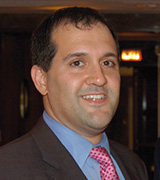- Leading HANAC: Stacy Bliagos on Community Service in New York
- The Hellenic Initiative Celebrates Record-Breaking Weekend in New York
- Building the Future: HANAC’s 53rd Anniversary Gala Honors Advocates for Affordable Housing and Community Care
- Leona Lewis: Las Vegas residency ‘A Starry Night’
- Emmanuel Velivasakis, Distinguished Engineer and Author, Presents His Book at the Hellenic Cultural Center
A Legacy that can only be Captured by Poetry

by Endy Zemenides
In January, Hellenism lost a true giant when Nikos Mouyiaris passed away. Multiple tributes, articles in the Greek and Greek-American press, and statements from the governments of Greece and Cyprus have detailed his professional and civic achievements and his dedication to Hellenism. One thing that was noted again and again was Nikos’ love of Greek poetry and literature, and in particular the work of Odysseus Elytis. But it is the poem of another great Hellene – Constantine Cavafy’s Thermopylae – that perhaps best captures the legacy of Nikos.
Honor to those who in the life they lead define and guard a Thermopylae.
Everyone who knew and worked with Nikos – indeed, anyone who had even had a bit of exposure to him – realized that Nikos both defined and guarded a Thermopylae. His devotion to Hellenism — whether it be to national issues; to helping Greece and Cyprus economically; to promoting the Greek language, Greek theater, Greek music, Greek schools, the Greek media; to helping individual Hellenes – was obvious. Nikos considered himself an inheritor of the great Hellenic legacy and accepted the responsibility of not only passing it on but of trying to pass on more than he had inherited.
Never betraying what is right, consistent and just in all they do
but showing pity also, and compassion;
It has become fashionable in our community to overuse the term philotimo. When one hears philotimo uttered nowadays, you almost have to pause and consider whether you’ve heard the genuine word or a counterfeit. No one paused in such a way when it came to Nikos. His sense of justice and compassion always led to action, even if he had to act alone. For Nikos, doing the right thing meant actually doing it, not merely talking about it.
generous when they are rich, and when they are poor,
still generous in small ways,
still helping as much as they can;

Nikos Mouyiaris, in memoriam
Nikos’ generosity had become legendary. From his establishment of HALC, to funding Rutgers’ Elytis Chair and St. John’s Modern Greek and Hellenic studies program, to his support of The Hellenic Initiative, the Pan-Cyprian, the PSEKA Conference, community initiative after community initiative counted on Nikos to step up to the plate and he delivered. But his generosity extended far beyond his checkbook. He was generous with his time. He didn’t only fund advocacy on Hellenic issues, he physically went to Washington and elsewhere and advocated. He did not only pay for students to have more options when in school, he mentored, helped arrange internships and hired more than a few himself. And that generosity in time and effort began during his student years, long before Nikos had “made it”. Nikos didn’t give what it was easy for him to give, he gave what he could.
always speaking the truth,
yet without hating those who lie.
Nikos was never shy, and if he were on the opposite side of an issue with you, you would hear about it first hand and not through the grapevine. He could disagree without being disagreeable and was passionate about his views. Some mistook his passion and the strength with which he held his beliefs as attacks, but Nikos looked for areas of consensus and cooperation more than for arenas of conflict. It would be fair to conclude that those who never cooperated with Nikos never really tried.
And even more honor is due to them
when they foresee (as many do foresee)
that in the end Ephialtis will make his appearance,
that the Medes will break through after all.
Nikos was never under any illusion on how hard the task of protecting and promoting Hellenism was. He also knew that Ephialtes was around the corner and that it was not enough for him to act, but to enable and inspire others to act. Ephialtes appeared to him in many forms – colleagues who committed to working together, only to leave him acting alone; others who matched his rhetoric but not his contributions despite an ability to do so; those who gave up or just lowered the bar when it came to preserving Hellenism. But Nikos did inspire and enable others, and through institutions that he established – HALC, the Elytis Chair, the Modern Greek and Hellenic Studies program at St. John’s – he still inspires and enables. The Medes – that is death – may have broken through and taken Nikos from us too soon, but his sacrifice was meant to last beyond his lifetime. Like Leonidas and the 300, Nikos acted to buy us time, to show us what is possible, to make us believe. Nikos guarded Thermopylae; from here on out, it is up to us to decide whether we can play the role of the Spartans at Plataea.











0 comments